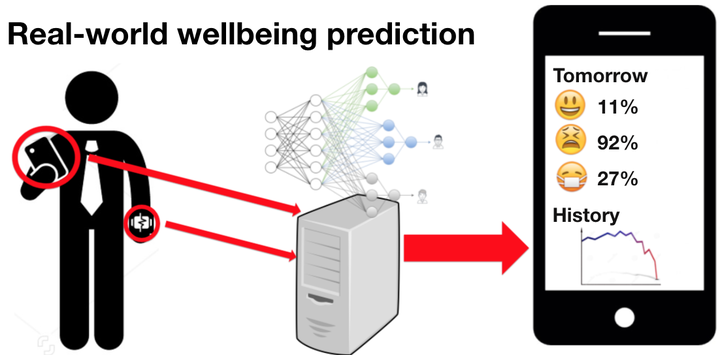
Abstract
We collected and analyzed subjective and objective data using surveys and wearable sensors worn day and night from 68 participants, for 30 days each, to address questions related to the relationships among sleep duration, sleep irregularity, self-reported Happy-Sad mood and other factors in college students. We analyzed daily and monthly behavior and physiology and identified factors that affect mood, including how accurately sleep duration and sleep regularity for the past 1-5 days classified the participants into high/low mood using support vector machines. We found statistically significant associations among sad mood and poor health-related factors. Behavioral factors such as the percentage of neutral social interactions and the total academic activity hours showed the best performance in separating the Happy-Sad mood groups. Sleep regularity was a more important discriminator of mood than sleep duration for most participants, although both variables predicted happy/sad mood with from 70-82% accuracy. The number of nights giving the best prediction of happy/sad mood varied for different groups of individuals.